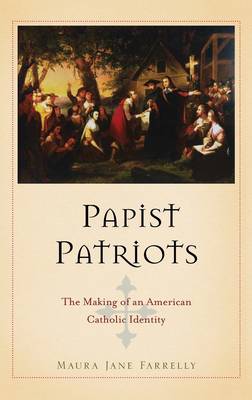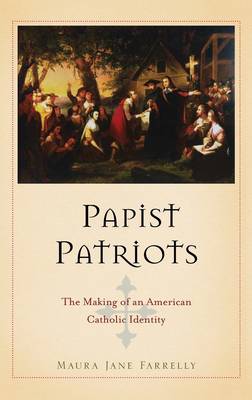
- Retrait gratuit dans votre magasin Club
- 7.000.000 titres dans notre catalogue
- Payer en toute sécurité
- Toujours un magasin près de chez vous
- Retrait gratuit dans votre magasin Club
- 7.000.0000 titres dans notre catalogue
- Payer en toute sécurité
- Toujours un magasin près de chez vous
Papist Patriots
The Making of an American Catholic Identity
Maura Jane Farrelly
Livre relié | Anglais
117,95 €
+ 235 points
Description
"The persons in America who were the most opposed to Great Britain had also, in general, distinguished themselves by being particularly hostile to Catholics." So wrote the minister, teacher, and sometime-historian Jonathan Boucher from his home in Surrey, England, in 1797. He blamed "old prejudices against papists" for the Revolution's popularity - especially in Maryland, where most of the non-Canadian Catholics in British North America lived.
Spécifications
Parties prenantes
- Auteur(s) :
- Editeur:
Contenu
- Nombre de pages :
- 324
- Langue:
- Anglais
Caractéristiques
- EAN:
- 9780199757718
- Date de parution :
- 06-01-12
- Format:
- Livre relié
- Format numérique:
- Genaaid
- Dimensions :
- 155 mm x 236 mm
- Poids :
- 544 g

Les avis
Nous publions uniquement les avis qui respectent les conditions requises. Consultez nos conditions pour les avis.






